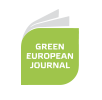The Prague Spring
For millenials, Prague is a vibrant, beautiful city – albeit one with an excessive number of tourists and stag nights. So perhaps it’s easier to describe the same city of fifty years ago by stating what it lacked. It’s a series of absences: the absence of democracy, the absence of truth, and the absence of colour – conveyed in the monochrome newsreel images of Soviet tanks on the streets of the city. There was also the absence of solidarity, so keenly felt by the Czechs and Slovaks. Because for the second time in the twentieth century they had been callously abandoned by the west, first in 1938 when we capitulated to Hitler’s demands at Munich, then thirty years later in 1968 when the Soviet Union violently crushed the Prague Spring, a democratic reform movement which promised the people ‘socialism with a human face’.
The millenials who visit Prague today enjoy many of the benefits of globalisation: cheap clothes and air travel, a digital world of instant communication, but they are also a generation that suffers higher stress levels in jobs that are less secure, a generation that pays higher rents and has a dwindling prospect of owning a home. So, fifty years on from the Prague Spring, with the counterweight of state socialism having almost vanished, it may be an appropriate on this anniversary to consider the idea of ‘capitalism with a human face.’
John Gormley (1959) is a former Lord Mayor of Dublin and a former Minister for the Environment in the Irish Government.

















